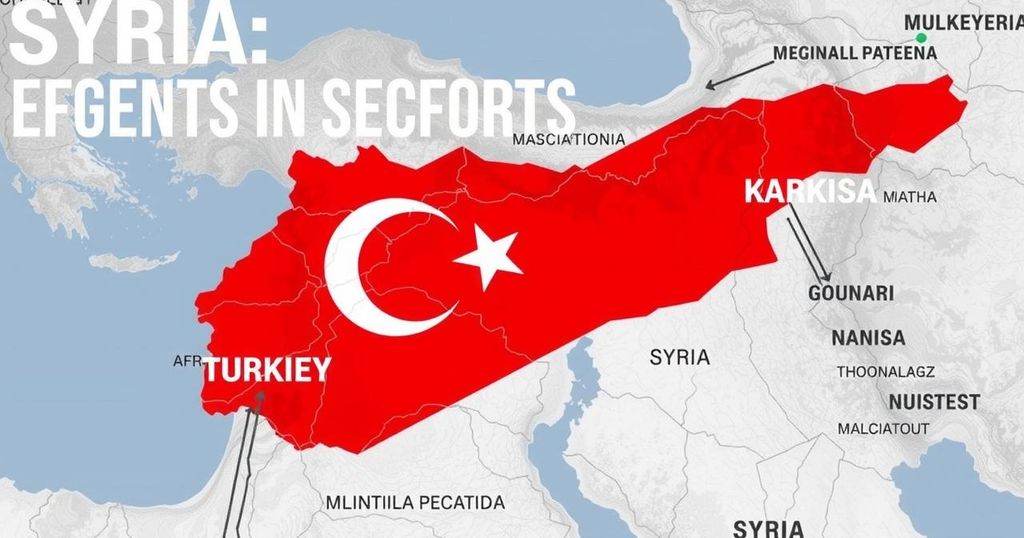Turkey’s Position in Syria: Claims of Victory Are Premature

The article critically assesses claims of Turkey’s victory in Syria following Assad’s ousting. It argues that while Turkey seems well-positioned through alliances with militias, the situation is more complex than victory narratives suggest. Turkey faces challenges from Kurdish forces and competition from other regional powers, indicating the need for a nuanced understanding of the evolving dynamics in Syria.
In the wake of Bashar al-Assad’s fall, analysts have prematurely declared Turkey the victor in Syria. While Ankara seems well-positioned due to its alignment with militias like Hayat Tahrir al-Sham (HTS) and the Syrian National Army, it has yet to secure a definitive victory. The narrative that Turkey orchestrated Assad’s downfall is overly simplistic; Turkey’s original goal was to prompt negotiations with the Syrian president rather than outright regime change.
Turkey’s relations with HTS are complex. Although Turkish officials, including Foreign Minister Hakan Fidan, have embraced HTS, they are not the sole determinants of the political landscape. HTS has gained autonomy following Assad’s exit, leading to increased diplomatic outreach with various countries, including the U.S. and European nations. This development highlights Turkey’s diminished influence as regional powers seek to establish their communication channels with Syria.
Moreover, Turkey faces significant challenges in addressing Kurdish movements, particularly the People’s Protection Units (YPG). Ankara seeks to leverage its position in post-Assad Syria to eliminate the YPG as a security threat; however, this ambition is fraught with obstacles. The Kurds possess considerable means to resist Turkish advances, potentially leading to prolonged conflicts in both Syria and Iraq.
Turkey’s long-held narrative of victory in Syria oversimplifies a vastly intricate situation marked by shifting alliances and emerging power dynamics. The complexities of the Syrian conflict necessitate a nuanced understanding, suggesting that Turkey’s supposed triumph may be more a matter of wishful thinking than reality. Thus, it is crucial for policymakers to remain aware of the evolving situation rather than hastily concluding that Turkey has achieved definitive success in Syria.
The article addresses the geopolitical developments in Syria following the ousting of President Bashar al-Assad. Various analysts have heralded Turkey as the primary victor amid these changes. The discussion delves into the partnerships that Turkey has formed with certain militia groups and the implications of these alliances, as well as the challenges posed by Kurdish forces and regional players. Understanding these dynamics is essential to grasp the current state of affairs in Syria and Turkey’s role within it.
In conclusion, while Turkey appears to have some strategic advantages in post-Assad Syria, the portrayal of its victory is notably premature. The dynamics within the region are shifting, with rival powers asserting their influence and complicated challenges posed by Kurdish nationalism. Policymakers must remain vigilant and discerning in their assessments, recognizing that the situation in Syria is far from resolved and that Turkey’s supposed success is by no means guaranteed.
Original Source: foreignpolicy.com







